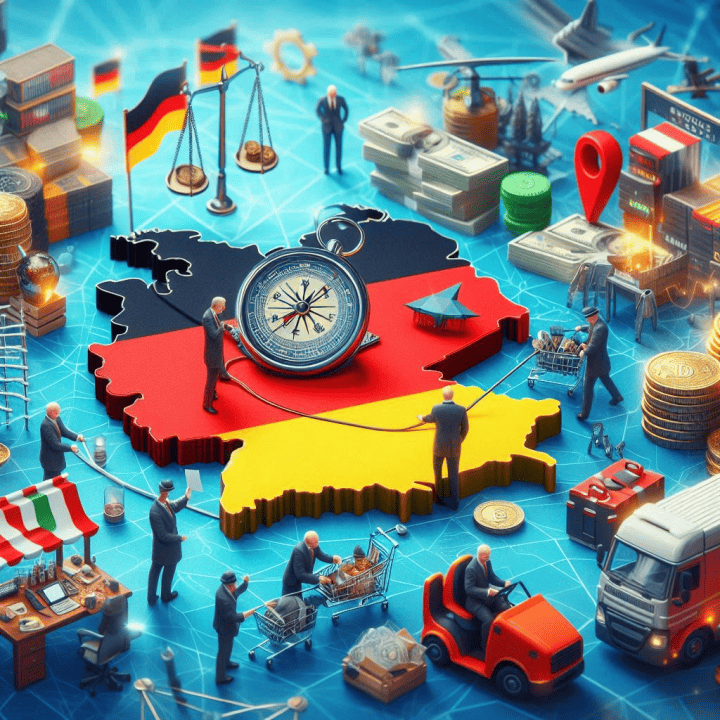
Germany Scraps Its Sustainability Supply Chain Law

Germany’s new government- Christian Democratic bloc (CDU and CSU) and center-left Social Democratic Party (SPD) has announced that it will get rid of the country’s current law on corporate sustainability and human rights in supply chains called the Supply Chain Act (LkSG).
Instead, Germany will wait for a new European Union (EU) law called the Corporate Sustainability Due Diligence Directive (CSDDD), which is expected to start in mid-2028.
What was the LkSG?
· Introduced in 2021, the law made big German companies check for human rights and environmental risks in their operations and supply chains.
· Companies had to report these checks every year.
· The law applied to companies with over 3,000 employees, and from 2024, also to those with more than 1,000.
· Breaking the rules under this Act could cost companies up to 2% of their annual revenue.
Why Is It Being Removed?
Germany’s newly formed coalition government (CDU, CSU, SPD) aims to:
· Reduce bureaucracy and cut red tape as a part of its agenda.
· Avoid complex overlapping laws and replacing with simplified one.
· Facilitate ease in adoption and compliance for the businesses.
· Protect especially Small and medium-sized businesses (SMEs) by relieving them from heavy compliance duties.
What does the EU law (CSDDD) involve?
1) It asks companies to take action against problems like Child labor, Forced labor and slavery, Environmental pollution, Deforestation and damage to ecosystems in their supply chains.
2) But under the EU’s recent “Omnibus” proposals: Checks are needed only for direct suppliers: For example, the factories or farms they deal with directly. Companies won’t need to check further down the supply chain unless they have strong reason to believe that there’s a problem deeper in the chain.
- Reviews are needed only every 5 years (not yearly): Companies will no longer need to do checks every year. Instead, they will have to review the effectiveness of their efforts once every five years.
- Small companies will have fewer reporting burdens:
- If small companies are part of the supply chain, large companies can’t ask them for too much information. There will be limits on what they can request, to avoid overwhelming the smaller players.
- SMEs won’t have to follow all the detailed reporting requirements that apply to big corporations.
Our Take: Why This Matters
Germany’s move signals a shift from national urgency on supply chain responsibility to a more unified but slower approach. While this may reduce the burden on companies, there are certain concerns like:
i. Delay action on urgent human rights and environmental issues.
ii. Create a compliance gap between now and 2028.
iii. Make it harder to track indirect impacts without strong enforcement.
At the same time, this step could bring regulatory consistency across the EU, which many companies have been asking for.
More News
ESG Frameworks and Why They Matter: A Rating Provider’s Perspective
An in-depth overview of key global and regulatory ESG frameworks, explaining how...
UK Proposes Regulation of ESG Ratings to Strengthen Market Trust
The UK proposes formal regulation of ESG rating providers to address transparenc...
Double Materiality Assessment and its Significance
This blog explains the concept of Double Materiality Assessment and why it is be...
How Independent Reviews Enhance Investor Confidence in ESG Debt Markets
SEBI’s 2025 ESG debt framework marks a new phase for India’s sustainable fin...
GHG Protocol x ISO: A New Partnership to Align Global Carbon Accounting
A major shift in corporate climate reporting is underway as the GHG Protocol and...


